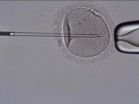(Press-News.org) Fertility treatment has a strong emotional impact on women who want to have children. A study of European countries with the highest number of assisted reproduction cycles identifies which aspects of reproduction treatment contribute to psychological stress.
Inability to conceive is extremely stressful for women who want to have a family. This notion is shown by a study published in the 'Human Reproduction' journal on patients in four countries with the highest number of cases of assisted reproduction cycles in Europe: France, Germany, Italy and Spain.
"Infertility causes a series of varied emotions that have a negative impact on important aspects of a woman's life," as explained to SINC by Juan García Velasco, one of the authors of the study, who is also director of the Infertility Institute of Valencia and lecturer in Obstetrics and Gynaecology at the Rey Juan Carlos de Madrid University. "It is linked to depression, anxiety, anger, cognitive imbalance and low self-esteem," he adds.
The study not only analyses the emotional impact of infertility on women but also identifies those aspects of ovary stimulation that contribute to the physical and psychological stress suffered by many patients.
The 445 women between the ages of 18 and 44 years taking part in the study had experienced difficulties in conceiving. While some had never undergone any fertility treatment, others were receiving it at the time or had already received it in the past two years. Almost a third of the participants said they began to worry from the moment in which they started trying to get pregnant and nearly half claimed to have felt ashamed or like a failure as a woman.
It was found that anxiety toward injections and the deterioration of their relationship with their partner were the main causes of stress. In this respect, the women who actually received treatment said that they got closer to their partner (33% compared to 19%). The majority of participants felt that their partner supported them, especially those that received fertility therapy (63%).
Women undergoing treatment said they were more anxious when it comes to sex and negative emotions, such as impatience or frustration. Whereas those not having treatment said they felt "confused" and those undergoing treatment claimed to mostly feel "vulnerable and exhausted".
Despite being aware of the limitations of age, 68% never thought they would have a problem conceiving. According to García Velasco, "in order to overcome the physical and psychological challenges that such treatment implies, some form of protocol would be necessary that involves a minimal number of injections and an increase in readily available information in order to reduce stress and increase patient satisfaction."
Waiting two years to start treatment
García Velasco outlines that "infertility can significantly affect women's lives and their personal relationships." "However, despite its negative impact, many of those women trying to conceive do not seek medical help."
The reason why women wait for an average of two years before starting treatment is that they want to wait to see if they can conceive naturally. The authors believe that this waiting period causes anxiety and regret and almost 58% of participants feel that they waited too long.
The author concludes, "these results show the need to educate women to eradicate fear and better prepare them for the demands of treatment and its associated emotional effects."
INFORMATION:
References:
Alice Domar, Keith Gordon, Juan Garcia-Velasco, Antonio La Marca, Paul Barriere, Fabiola Beligotti. "Understanding the perceptions of and emotional barriers to infertility treatment: a survey in four European countries". Human Reproduction, Vol.27, No.4 pp. 1073, 2012
Fear of treatment puts stress on women undergoing fertility therapy
2012-10-03
ELSE PRESS RELEASES FROM THIS DATE:
Study suggests stem cell transplant survivors at increased risk of developing heart disease
2012-10-03
(WASHINGTON, October 3, 2012) – New research appearing online today in Blood, the Journal of the American Society of Hematology (ASH), suggests that long-term survivors of hematopoietic cell transplants (HCT) are at an increased risk of developing heart disease risk factors such as high blood pressure, diabetes, and high cholesterol when compared to the general population. These risk factors, combined with exposure to pre-HCT therapy, contribute to a noticeably increased risk of heart disease over time.
HCT, the transplantation of blood-forming stem cells from the bone ...
Deforestation in snowy regions causes more floods
2012-10-03
WASHINGTON – New research suggests that cutting down swaths of forest in snowy regions at least doubles – and potentially quadruples – the number of large floods that occur along the
rivers and streams passing through those forests.
For decades, the common perception in hydrology has been that deforestation in such areas made seasonal floods bigger on average, but had little effect on the number of large floods over time,
said geoscientist Kim Green of the University of British Columbia. But a new study by Green and her co-author Younes Alila published today in Water ...
Got dry eyes? Measuring eyelid sensitivity may reflect the causes
2012-10-03
Philadelphia, Pa. (October 3, 2012) - A simple test of eyelid sensitivity may help vision professionals in evaluating one of the most common eye-related symptoms: dry eyes. A new study linking increased eyelid sensitivity to decreased function of the eyelid margins is presented in the article – "Lid Margins: Sensitivity, Staining, Meibomian
Gland Dysfunction, and Symptoms", appearing in the October issue of Optometry and Vision Science, official journal of the American Academy of Optometry. The journal is published by Lippincott Williams & Wilkins, a part of Wolters ...
Home-based assessment tool for dementia screening
2012-10-03
With baby boomers approaching the age of 65 and new cases of Alzheimer's disease expected to increase by 50 percent by the year 2030, Georgia Tech researchers have created a tool that allows adults to screen themselves for early signs of dementia. The home-based computer software is patterned after the paper-and-pencil Clock Drawing Test, one of health care's most commonly used screening exams for cognitive impairment.
"Technology allows us to check our weight, blood-sugar levels and blood pressure, but not our own cognitive abilities," said project leader Ellen Yi-Luen ...
ARS scientists devising new ways to protect avocados
2012-10-03
This press release is available in Spanish.U.S. Department of Agriculture (USDA) scientists are coming up with new strategies to combat a beetle threatening the nation's avocado trees.
Laurel wilt disease is caused by the fungus Raffaelea lauricola, and is vectored by the redbay ambrosia beetle, an invasive pest from Asia that has spread to the Carolinas, Florida and west to Mississippi. The disease kills 90-95 percent of infected trees. Scientists are concerned that it will soon reach Mexico and California, which are major avocado production areas. Its victims also ...
Ecologists start new Antarctic season with paper comparing animals' handling of adversity
2012-10-03
BOZEMAN, MONT. – Montana State University ecologists who are about to return to Antarctica for another season had to adapt to dramatic changes in the sea ice last year.
Now they have published a paper that says the Weddell seals they monitor had to deal with some dramatic changes in ice in recent years, too. In fact, the seals handled the adverse conditions well and suffered less than the Emperor penguins in that region.
The paper was published Sept. 26 in the international journal, "Proceedings of the Royal Society B: Biological Sciences." Lead author was Thierry ...
Our preferences change to reflect the choices we make, even three years later
2012-10-03
You're in a store, trying to choose between similar shirts, one blue and one green. You don't feel strongly about one over the other, but eventually you decide to buy the green one. You leave the store and a market researcher asks you about your purchase and which shirt you prefer. Chances are that you'd say you prefer the green one, the shirt you actually chose. As it turns out, this choice-induced preference isn't limited to shirts. Whether we're choosing between presidential candidates or household objects, research shows that we come to place more value on the options ...
Mayo Clinic: Melanoma up to 2.5 times likelier to strike transplant, lymphoma patients
2012-10-03
ROCHESTER, Minn. -- Melanoma is on the rise nationally, and transplant recipients and lymphoma patients are far likelier than the average person to get that form of skin cancer and to die from it, a Mayo Clinic review has found. That is because their immune systems tend to be significantly depressed, making early detection of melanoma even more important, says co-author Jerry Brewer, M.D., a Mayo dermatologist. The findings are published in the October issue of Mayo Clinic Proceedings.
VIDEO ALERT: Video of Dr. Brewer is available for journalists to download on the Mayo ...
Does moral decision-making in video games mirror the real world?
2012-10-03
New Rochelle, NY, October 3, 2012—Making moral judgments is increasingly a central element of the plots of popular video games. Do players of online video games perceive the content and characters as real and thus make moral judgments to avoid feeling guilty? Or does immoral behavior such as violence and theft make the game any more or less enjoyable? The article "Mirrored Morality: An Exploration of Moral Choice in Video Games" published in Cyberpsychology, Behavior, and Social Networking, a peer-reviewed journal from Mary Ann Liebert, Inc., publishers examines these types ...
Drug reverses abnormal brain function in rett syndrome mice
2012-10-03
A promising study out today in the prestigious Journal of Neurosciences showed that in a mouse model of Rett syndrome, researchers were able to reverse abnormalities in brain activity and improve neurological function by treating the animals with an FDA-approved anesthesia drug, ketamine. Rett syndrome is among the most severe autism-related disorders, affecting about one in 10,000 female births per year, with no effective treatments available.
"These studies provide new evidence that drug treatment can reverse abnormalities in brain function in Rett syndrome mice," ...


